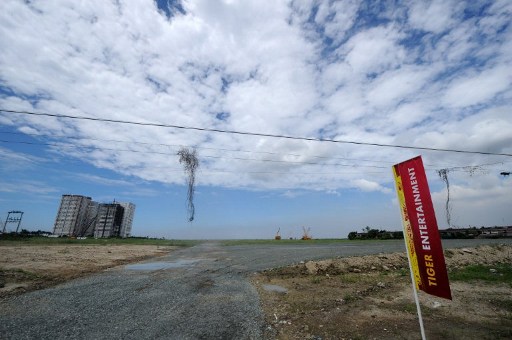Finance, PRA heads at odds over Pasay reclamation
The Department of Finance has stepped into the row between the SM and Ayala conglomerates over the proposed 300-hectare Manila Bay reclamation project approved late last year by the Pasay City government.
In a letter to President Aquino, Finance Secretary Cesar Purisima echoed the issues raised by the Ayala group, assailing the supposed lack of transparency under which the P54.5-billion project was awarded to the SM group.
“The process undertaken does not comply with the procedure laid down by law and rules, including the five-stage approval process of the Philippine Reclamation Authority for the conduct of reclamation projects,” he said in a Dec. 26, 2013, letter to the President.
Purisima pointed out that the power to approve or disapprove reclamation projects was vested in the board of the National Economic and Development Authority, which is chaired by the President.
The issues raised by the finance chief were soon after deflected by PRA general manager and CEO Peter Anthony Abaya. The PRA chief wrote President Aquino on Jan. 6, 2014, pointing out that Purisima’s complaints were premature as the agency has yet to review, much less approve, the reclamation proposal.
Article continues after this advertisementLast year, the Pasay City government approved an unsolicited proposal made by the SM group to reclaim 300 hectares from Manila Bay, to be used jointly by the conglomerate and the LGU. The move was immediately opposed by SM’s rival, the Ayala group, which claimed that it was not given sufficient time to challenge SM’s proposal.
Article continues after this advertisementThe finance chief, who is also de facto head of the influential economic team of the Aquino administration, told the President that the reclamation project ran counter to the policy of “subjecting all major infrastructure and development projects to transparent and competitive approval mechanisms in order to ensure that the national government derives the best value” from them.
“Should the PRA board approve the project, this will set a bad precedent that will embolden other local government units to pursue the same route,” he pointed out.
“Any action of the PRA to legitimize the Pasay reclamation project may likewise allow private sector proponents an avenue to make a claim on rights or assets without going through the transparent and competitive approval and bidding process required by law and existing rules,” Purisima added.
In reply to the points raised by Purisima, PRA’s Abaya pointed out that Pasay City “did not bid out the reclamation project itself, but only the determination of who the best joint-venture partner of the city will be through a Swiss challenge process.”
“As to the reclamation project itself, it will still need to undergo PRA’s five-stage approval process wherein its technical, financial, environmental and social aspects will be evaluated,” Abaya said.
It is only after this process when the PRA will either reject the proposal or endorse it to the Neda board for approval, he pointed out.
“We assure your Excellency that once Pasay City’s reclamation project is accepted for processing, PRA will strictly apply the government’s policy of transparent approval and bidding mechanisms to ensure that the national government derives the best value,” Abaya assured the President.
